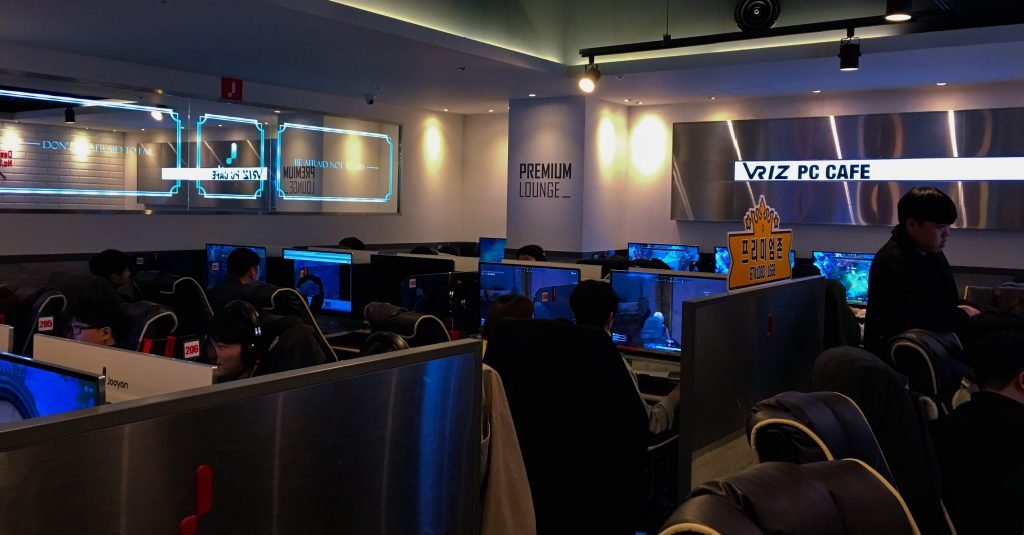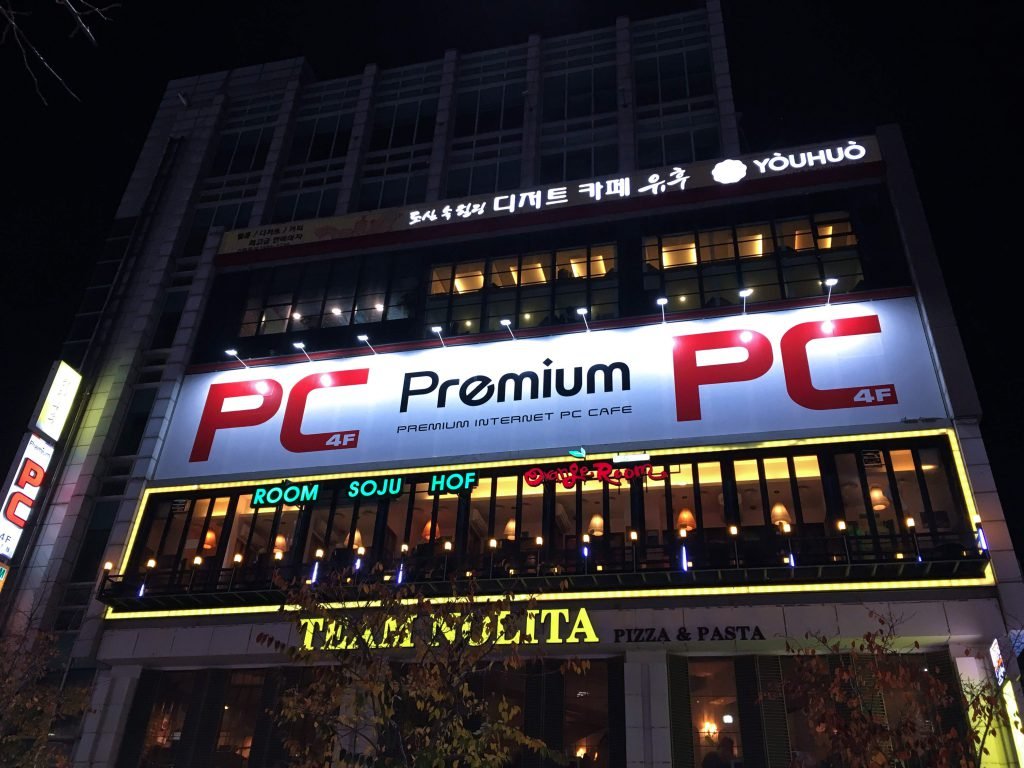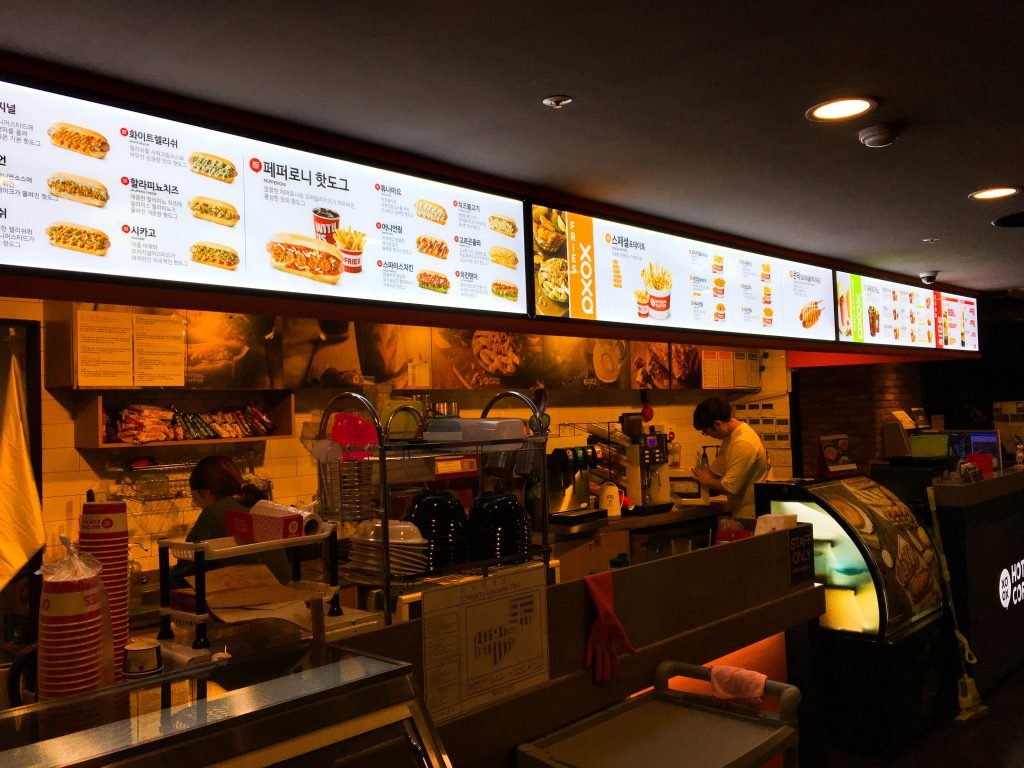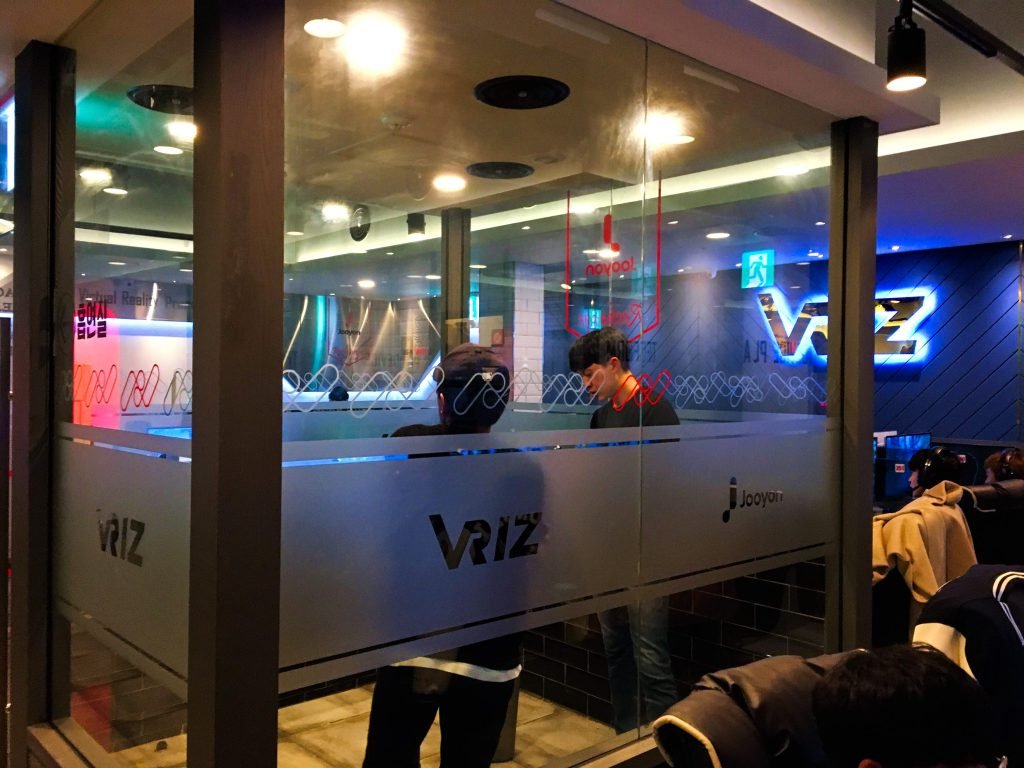The PC 방 (“PC bang”, or literally, ‘PC room’) is ubiquitous in South Korea.

A PC bang is basically a 24-hour internet café for gamers. It is equipped with dozens (sometimes even hundreds) of high-performance gaming computer stations with pre-downloaded games and comfortable chairs for anywhere from 500 to 3,000 KRW (or $0.45 – $2.65) an hour. Additionally, many PC bangs have on-demand food and beverage service that can be ordered right from your computer screen and delivered directly to your computer station. PC bangs are everywhere in Seoul; there is at least one on every block and there are often a few within 50m of each other.
As part of my research for my portfolio on the culture of video games and electronic sports (or eSports) in South Korea, I have visited many PC bangs to collect observations, pictures, and even dabble in some of the more popular games myself. They are incredibly accessible and convenient, and they introduce new cultural layers to the video game phenomenon.

The PC bang is a key element of electronic sports and video game culture in South Korea. It is a direct result of a push by the Korean government in the late-90s and early-2000s (following the Asian financial crisis) to develop a robust telecommunications and Internet infrastructure within the country. As a result, South Korea has an extremely high internet penetration rate (higher than the U.S.) and Seoul is consistently ranked as the city with the fastest internet and best connectivity in the world. The rise in popularity and prevalence of the PC bang was concurrent with the push for better Internet and the growing popularity of online video games. PC bangs became a convenient and affordable way to use premium equipment to play one’s favorite games at just a fraction of the cost.

On Friday and Saturday nights, PC bangs are pretty full by 2000-2100. At the nicer ones, it can be very difficult to even find an open station. They remain populated throughout the week, but not as busy as they are on weekends. Contrary to what I had imagined would be closer to the atmosphere of a library or café, PC bangs are usually noisy and full of energy during these peak times. The features of a PC bang are such that there is no absolute need to leave; each one is equipped with several bathrooms, food & water, and even smoking rooms. They attract people of all ages, from elementary-age students to adults in their 40s and 50s, but the majority of patrons are students and young adults in their late-teens and 20s. As the night goes on, only the more dedicated and competitive gamers remain into the early hours of the morning. This is in part due to South Korea’s Youth Protection and Revision Act (AKA the “Shutdown law” or “Cinderella law”), which forbids youth under 16 years old from playing computer games between 0000 and 0600. Because of this law, staff at PC bangs verify age and ID at night, kicking out those under 16 by midnight.

Aside from their convenience and low prices, PC bangs are a huge component of social activity. They serve as a venue for people to go play their favorite video games together, sitting next to each other to strategize or chastise, instead of playing from their respective homes apart from one another. Additionally, many of the PC bangs I’ve visited have ‘Couple Zones,’ where I have seen Korean couples spending evenings playing games at dual-screen and dual-keyboard stations with dividers between every two computers to allow people to play closer together. Whether it’s after work, school, tutoring sessions, cramming sessions, ditching any of the former, dinner, or a night of drinking, going to a PC bang is a great way to play your favorite video game while still enjoying the company of your friends.

